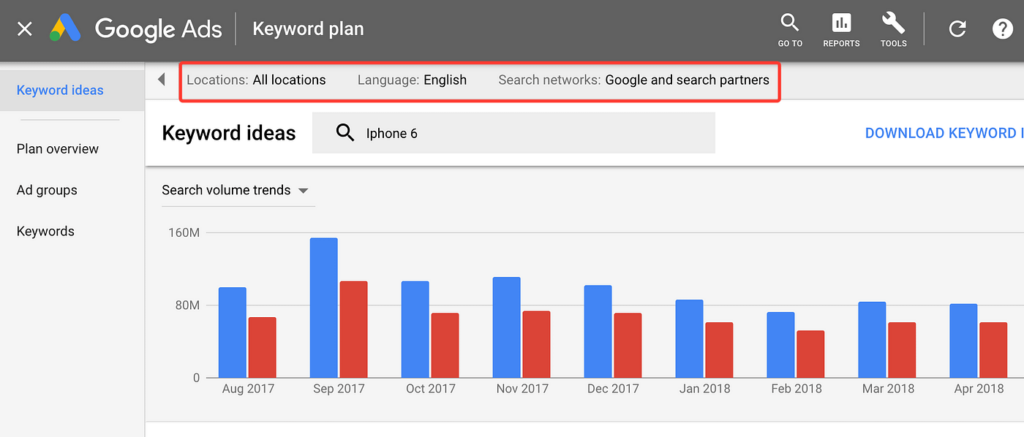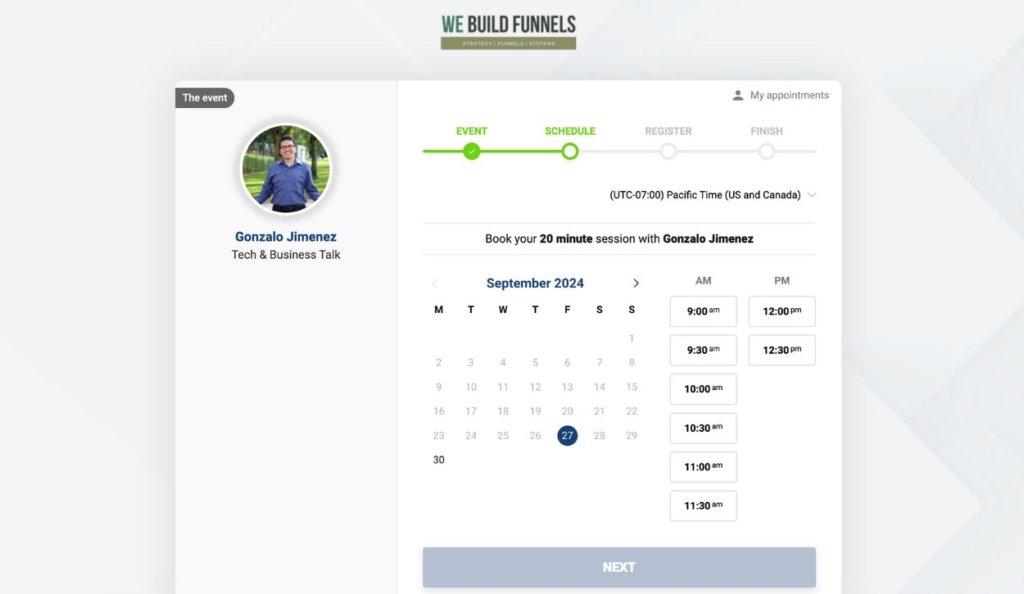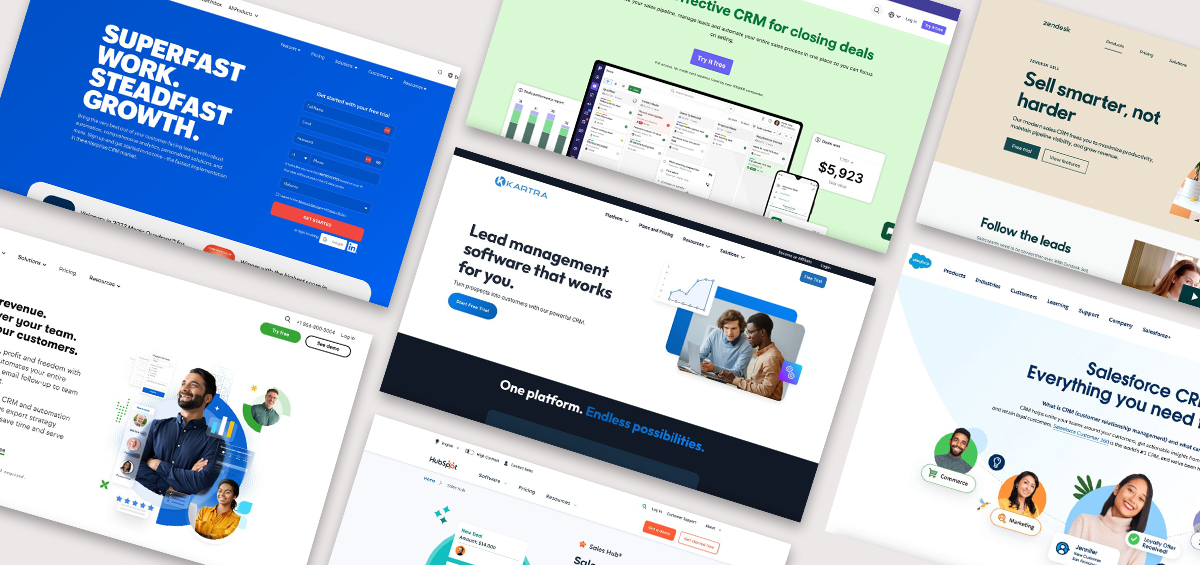One of the biggest challenges for independent consultants is keeping the client pipeline full. Freelance consultants often face up-and-down sales cycles that leave them stressed about finding new clients as soon as their current projects are finished. But with the right marketing plan, you’ll be free to focus on the work you love while successfully reaching new customers!
Here at Kartra, we’re passionate about giving online consultants the tools they need to succeed. Read on to learn actionable strategies for how to market yourself as a consultant.
15 marketing strategies to promote your consulting business
Because trust is so central to consulting services, the best marketing strategies for consultants involve sharing valuable content and making genuine connections that expand your network. Here are 15 specific strategies that are particularly effective for promoting an independent consulting business.
Grow your network on LinkedIn
Building a community on LinkedIn is one of the best ways to get leads as a consultant. Because it’s a networking platform for professionals, LinkedIn provides opportunities to engage directly with your target audience.
Interact with your LinkedIn connections regularly, remembering that social media is a give-and-take! You won’t be able to grow your following by exclusively promoting your services.
Use your account to share information your audience will find genuinely helpful and respond to the topics that they talk about as well. Your goal is to build a network of people who value your expertise. (And while not all of your connections will need your services, they probably know someone who does!)
Growing a LinkedIn following takes time and consistency, but it pays off in the long run. And if you branch out into other social media platforms, you can draw from the library of LinkedIn content you’ve already created.
Host a webinar or workshop
Hosting a webinar or workshop is a powerful way to connect with potential clients and build a list of contacts to follow up with later. A webinar format is effective for a couple of reasons. Firstly, it lets you showcase your knowledge and skills as a consultant in real time. You can educate listeners, work through a problem, share your story, hold a Q&A session, and engage directly with your target audience. This kind of interaction shows your clients what it would be like to work with you!
Secondly, hosting online events is a great way to narrow in on high-quality leads. Generally speaking, if someone takes the time to attend a webinar or workshop, it means they’re a high-intent lead and would likely respond well to follow-up correspondence after the session ends.
Discover key tips for hosting a successful event
Use industry reports or whitepapers as lead magnets
Downloadable resources such as whitepapers or industry reports make fantastic lead magnets for consultants. Whether or not you think of yourself as a writer, you have an edge as an expert in your field. Your target audience will be interested to know what you’ve learned over the years or your insights on current industry events. Focus on providing high-value information — the format itself can be simple.
Not only does industry-specific content build trust in your expertise, but it also gives you another way to build your contact list.
After people sign up to receive your content, send follow-up email sequences that reinforce your expertise and show your readers what they would gain from hiring you as a consultant. Your content should give them valuable insights, but not everything. If they want to go deeper, they’ll have to hire you!
What is a lead magnet?
A lead magnet is a resource or incentive that a potential customer receives in return for their contact information — often a name and email address. Lead magnets are crucial for building your list of prospects and moving leads further down the sales funnel.
Write SEO content
SEO (search engine optimization) is a set of strategies that help your website get more organic (non-paid) traffic for relevant keywords. Writing search engine optimized content is a long-term marketing tactic to give your website and your brand more visibility online. The idea is to create content related to your consulting services that answers your audience’s questions. When a potential client searches a question, you want your website to appear as an authoritative source on that subject.
As an expert in your subject matter, you will have plenty to write about! But if you’re not sure what topics to start with, pay attention to the questions you frequently get from clients and browse online forums or social media posts to get ideas from your audience’s conversations.

Google’s Keyword Planner is a free tool that shows you how many people search for keywords each month
While SEO does take time to build momentum, it’s not expensive to begin. Use your website to post articles and blogs about topics and keywords that your potential clients would be likely to search. Tools like Google Keyword Planner and Google Trends are free and show you the potential search volume and interest for keywords.
Design a professional website
Your website is arguably the most important part of your online presence. It’s one of the first touchpoints on the customer journey, and it’s where people decide that they want to work with you.
When designing your website, pay particular attention to how the site addresses your audience’s concerns, pain points, and values. What information will they be looking for? What hesitations will they have? It’s important to create a professional image for your business that addresses what matters the most to your audience!
Your website should make visitors see that you understand who they are and what they need — convincing them that your services will solve their problem. This is why it’s so important to feature success stories, testimonials, case studies, and reviews. Social proof is vital to proving that your services are trustworthy and reliable. Your website also needs a value proposition that clearly states what problem you solve and for whom.
Check out our guide to pricing consulting fees
Ask for referrals
Referrals are a crucial source of new business for consultants. Not only are they an indicator of your success as a consultant, but referrals tend to bring in high-quality clients who already trust your work. Word-of-mouth referrals are a valuable result of providing quality services, so don’t be afraid to ask your network directly for referrals.
Many entrepreneurs hesitate to ask because they don’t want to be pushy. While that instinct is understandable, it’s the wrong perspective! A good referral is win-win, and sometimes people just need the reminder that you’re looking for new clients. You can also incentivize referrals through a referral program that offers a type of compensation or discount for the referrer.
Offer free consultations
Giving prospects a free initial session is a widely used lead-generation strategy for consultants and other businesses that provide professional services. A free consultation is a high-value offer, and it gives you and your potential clients a low-commitment opportunity to see if your services are the right fit.

Business and funnel strategist Gonzalo Jimenez offers a 20-minute initial call
Be sure to set clear parameters for the call to protect your time and the amount of advice or information that you give away. The consultation should provide prospects with something of value, but not demand so much time or expertise that it’s a drain on your resources. (One tip to save you time — have prospects fill out an intake form to keep your meeting as efficient as possible!)
Contribute to online communities
Engaging in online communities such as Facebook groups or LinkedIn groups can be an effective way to build your network. As with your other social media marketing efforts, be careful not to promote your consulting company too often or too directly.
Online forums provide a space to ask questions, make connections, and discuss topics relevant to their personal or professional lives. Your goal in participating in these discussions is to both understand more about your clients and to build trust as a thought leader in your field of expertise. Subtly promote your services by including a link to your website in your forum signature or on your profile.
Launch a podcast
Hosting a podcast is an increasingly popular way to reach your target market through thought leadership. Many people prefer audio content to written content, so podcasts are a part of their daily or weekly routine. Use this versatile format to host hour-long discussions with other industry leaders, produce 15-minute, value-packed episodes, or anything in between.
Focus your podcast on topics that your target audience is likely to search. If you’ve already written content for your website or social media, building off of that material is a great place to start! Repurpose the content ideas that have gotten the most traction and sparked conversations. And don’t forget to promote your podcast on your website and social media platforms.
Start a YouTube channel
Launching a YouTube channel is another way to reach clients who prefer audio or visual content to written content. As the second largest search engine after Google, YouTube is a powerful content marketing channel for driving organic traffic to your brand. Many Google searches even include links to YouTube videos.
Use your channel to answer common questions in your area of expertise or educate viewers on updates in your industry. Upload content regularly, using YouTube-friendly titles and descriptions to improve discoverability. And don’t forget, there are a lot of opportunities to recycle content between video, audio, and written formats. (For example, repurpose a YouTube video recording as a podcast episode.)
Collaborate with other leaders
Partner with other industry leaders or organizations to expand your network and introduce your name and work to new audiences. For example, write an article for a relevant website or make guest appearances on a podcast. Focus on delivering valuable insights that demonstrate your expertise. When choosing who to collaborate with, look for websites that cater to your target audience and have a strong domain authority.
The value of guest contributions also goes both ways! Invite others to contribute to your website to drive traffic from the guest’s network and provide your audience with new content. Make sure to feature guests who align with your brand and have something valuable to share with your audience. Implement a clear guest posting policy that outlines your expectations for content quality, originality, and relevance.
Leverage email marketing
With the current emphasis on building a social media presence, don’t lose sight of email as a tried-and-true marketing channel. Email marketing campaigns engage directly with individual prospects — showing up in a platform that they probably use many times every day.

Online business expert Louise Henry delivers a weekly newsletter to her contact list
Use email automation for general emails that you send frequently (such as follow-up emails to webinar attendees), leveraging audience segmentation and other personalization as needed. You can also use email as a means for delivering high-value content. Sending a weekly newsletter with tips or industry updates, for example, is a great way to stay in touch with past, current, and prospective customers — reinforcing their image of you as an authority in your field.
Create automated sales funnels
One of the most common marketing mistakes is to think of marketing tactics individually — running an ad, posting on social media, and writing SEO content without considering how these channels are working together. Instead, your marketing efforts should create a sales funnel that aligns with your ideal client’s buyer journey (all the steps they take before making a purchase). Each marketing strategy should address the buyer’s needs at a certain stage of the customer journey and present a next step that moves them closer to purchasing.
Marketing automation makes it possible to run sales funnels on autopilot. This is an important setup for small business owners like consultants who divide their time between many different tasks! For example, you might have a pre-recorded webinar on your website that visitors sign up for by providing their name and email. With an automated sales funnel, the prospect can immediately receive a link to the recording, be presented with a free consultation pop-up halfway through the video, and receive follow-up emails upon completing the webinar.
How Kartra’s all-in-one platform revolutionized her consulting business
Attend in-person trade shows or conferences
Investing in digital marketing channels is necessary to grow your consulting business, but there’s still significant value in attending in-person networking events such as trade shows or conferences. Keep in mind that these types of events don’t always drive a lot of new business at first — they’re about network-building and spending time where your clients are.
Take advantage of in-person events to meet up with past or current clients, talk to prospects face-to-face, and establish yourself as a committed member of that community. Over time, familiarity and personal interaction are likely to pay off with new customers, connections, and referrals.
Make marketing a habit
It’s easy to neglect your marketing when you have consulting projects to work on. But it’s important to regularly spend time on your business — continually interacting with your network and building brand awareness. Inconsistent marketing is a big reason why solopreneurs experience up-and-down sales cycles.
Consistency is also just a necessary part of investing in any marketing channel. Email, social media, SEO content — all of these marketing efforts take time (as well as testing and adaptation) to see results. When you make marketing a part of your routine, you give your marketing campaigns room to succeed — and you give yourself the ability to find the best consulting marketing strategy for your business and your clients.
Kartra is the best all-in-one marketing tool for consultants
You have a lot of options for marketing your consulting business! To deliver great results for your clients and build a robust sales funnel, we recommend you focus on one piece of the puzzle at a time. With dedication and consistency, you’ll learn which strategies are most effective for your business!
We also recommend taking advantage of an all-in-one marketing platform like Kartra. Instead of paying for (and learning) new software every time you add to your marketing strategy, Kartra’s comprehensive features enable you to create, market, and scale your business from the same powerful platform.
Generate leads on autopilot with Kartra’s all-in-one marketing software for consultants
Get Started Today


